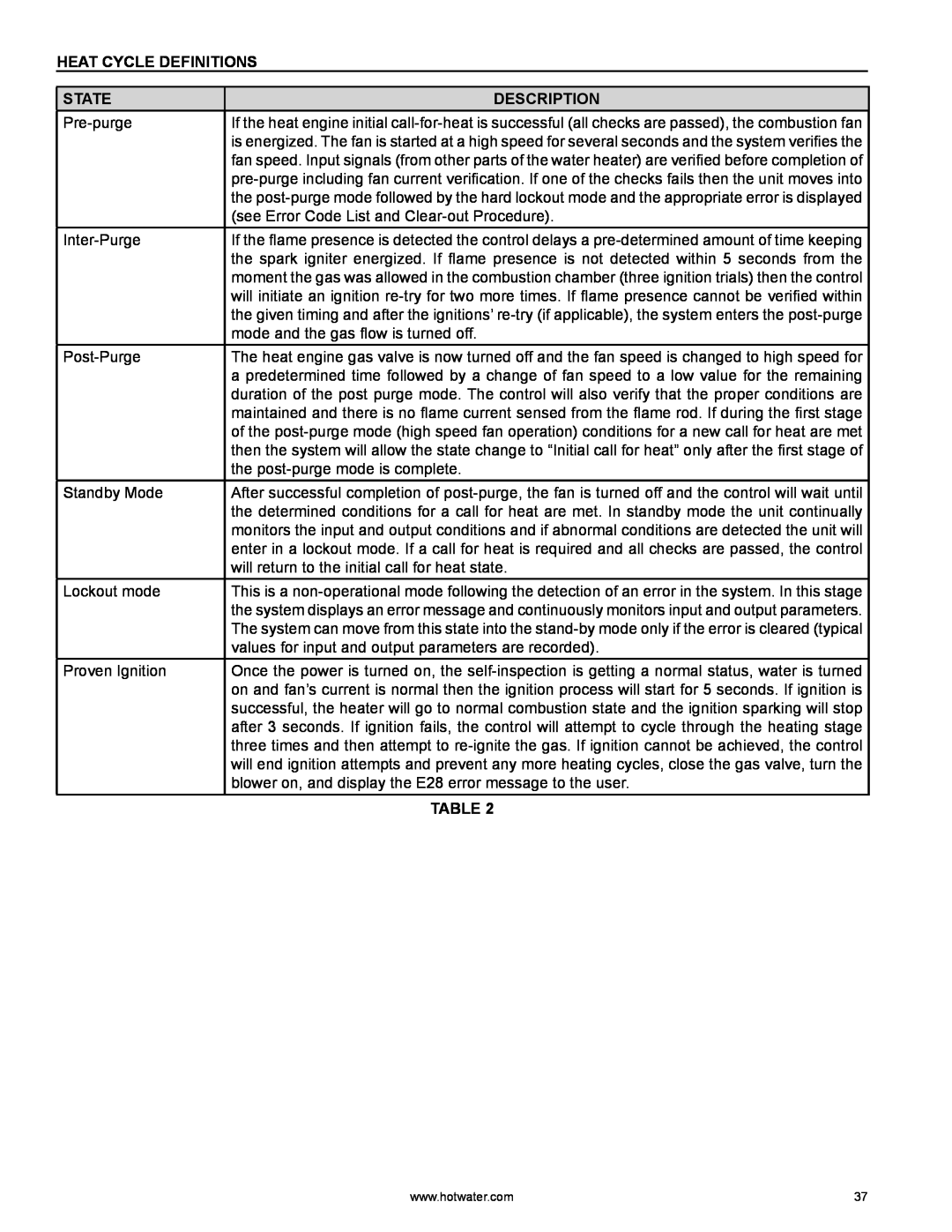HEAT CYCLE DEFINITIONS
STATE | DESCRIPTION |
If the heat engine initial | |
| is energized. The fan is started at a high speed for several seconds and the system verifies the |
| fan speed. Input signals (from other parts of the water heater) are verified before completion of |
| |
| the |
| (see Error Code List and |
If the flame presence is detected the control delays a | |
| the spark igniter energized. If flame presence is not detected within 5 seconds from the |
| moment the gas was allowed in the combustion chamber (three ignition trials) then the control |
| will initiate an ignition |
| the given timing and after the ignitions’ |
| mode and the gas flow is turned off. |
The heat engine gas valve is now turned off and the fan speed is changed to high speed for | |
| a predetermined time followed by a change of fan speed to a low value for the remaining |
| duration of the post purge mode. The control will also verify that the proper conditions are |
| maintained and there is no flame current sensed from the flame rod. If during the first stage |
| of the |
| then the system will allow the state change to “Initial call for heat” only after the first stage of |
| the |
Standby Mode | After successful completion of |
| the determined conditions for a call for heat are met. In standby mode the unit continually |
| monitors the input and output conditions and if abnormal conditions are detected the unit will |
| enter in a lockout mode. If a call for heat is required and all checks are passed, the control |
| will return to the initial call for heat state. |
Lockout mode | This is a |
| the system displays an error message and continuously monitors input and output parameters. |
| The system can move from this state into the |
| values for input and output parameters are recorded). |
Proven Ignition | Once the power is turned on, the |
| on and fan’s current is normal then the ignition process will start for 5 seconds. If ignition is |
| successful, the heater will go to normal combustion state and the ignition sparking will stop |
| after 3 seconds. If ignition fails, the control will attempt to cycle through the heating stage |
| three times and then attempt to |
| will end ignition attempts and prevent any more heating cycles, close the gas valve, turn the |
| blower on, and display the E28 error message to the user. |
| TABLE 2 |
www.hotwater.com | 37 |
